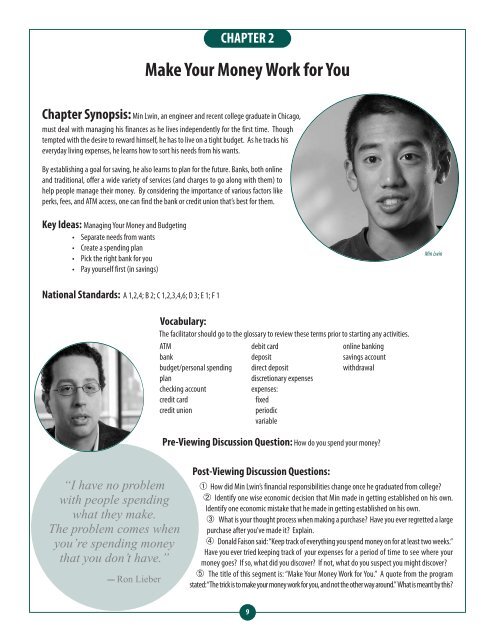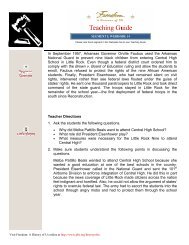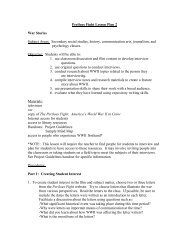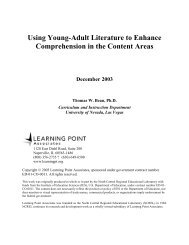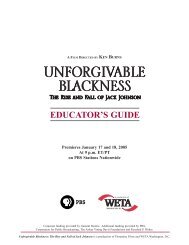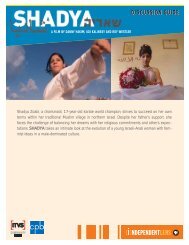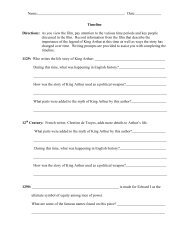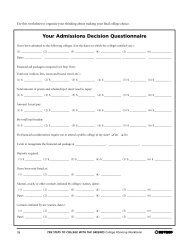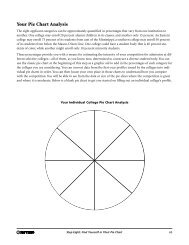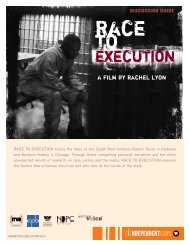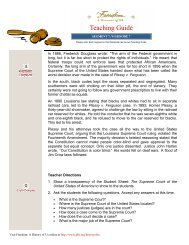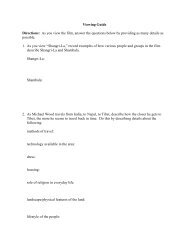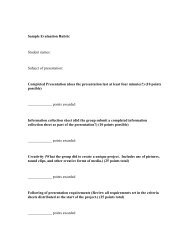Facilitator's Guide - PBS
Facilitator's Guide - PBS
Facilitator's Guide - PBS
Create successful ePaper yourself
Turn your PDF publications into a flip-book with our unique Google optimized e-Paper software.
CHAPTER 2<br />
Make Your Money Work for You<br />
Chapter Synopsis: Min Lwin, an engineer and recent college graduate in Chicago,<br />
must deal with managing his finances as he lives independently for the first time. Though<br />
tempted with the desire to reward himself, he has to live on a tight budget. As he tracks his<br />
everyday living expenses, he learns how to sort his needs from his wants.<br />
By establishing a goal for saving, he also learns to plan for the future. Banks, both online<br />
and traditional, offer a wide variety of services (and charges to go along with them) to<br />
help people manage their money. By considering the importance of various factors like<br />
perks, fees, and ATM access, one can find the bank or credit union that’s best for them.<br />
Key Ideas: Managing Your Money and Budgeting<br />
• Separate needs from wants<br />
• Create a spending plan<br />
• Pick the right bank for you<br />
• Pay yourself first (in savings)<br />
Min Lwin<br />
National Standards: A 1,2,4; B 2; C 1,2,3,4,6; D 3; E 1; F 1<br />
Vocabulary:<br />
The facilitator should go to the glossary to review these terms prior to starting any activities.<br />
ATM<br />
debit card<br />
online banking<br />
bank<br />
deposit<br />
savings account<br />
budget/personal spending direct deposit<br />
withdrawal<br />
plan<br />
discretionary expenses<br />
checking account<br />
expenses:<br />
credit card<br />
fixed<br />
credit union<br />
periodic<br />
variable<br />
Pre-Viewing Discussion Question: How do you spend your money?<br />
“I have no problem<br />
with people spending<br />
what they make.<br />
The problem comes when<br />
you’re spending money<br />
that you don’t have.”<br />
---- Ron Lieber<br />
Post-Viewing Discussion Questions:<br />
a How did Min Lwin’s financial responsibilities change once he graduated from college?<br />
b Identify one wise economic decision that Min made in getting established on his own.<br />
Identify one economic mistake that he made in getting established on his own.<br />
c What is your thought process when making a purchase? Have you ever regretted a large<br />
purchase after you’ve made it? Explain.<br />
d Donald Faison said:“Keep track of everything you spend money on for at least two weeks.“<br />
Have you ever tried keeping track of your expenses for a period of time to see where your<br />
money goes? If so, what did you discover? If not, what do you suspect you might discover?<br />
e The title of this segment is: “Make Your Money Work for You.” A quote from the program<br />
stated:“The trick is to make your money work for you, and not the other way around.” What is meant by this?<br />
9


